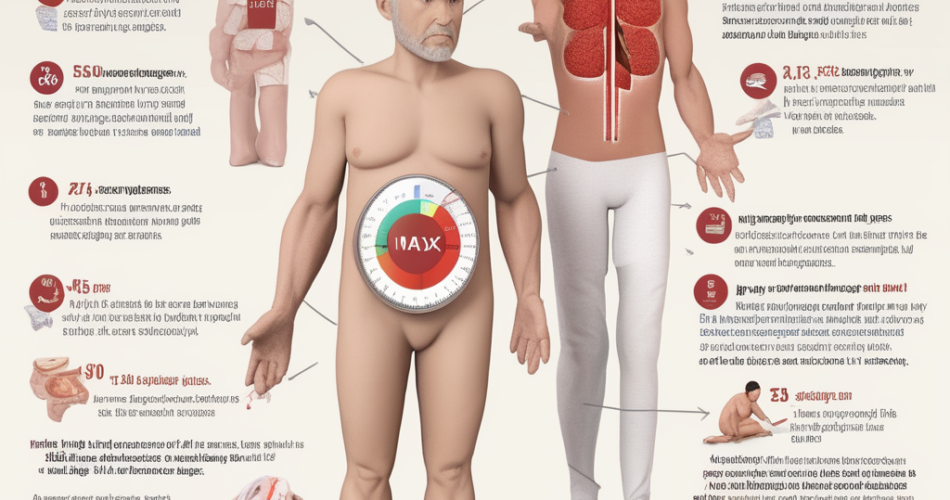Managing diabetes can be quite the task, but with the right approach, it’s definitely doable. It’s important to remember that it’s not just about taking your medication and going to doctor’s appointments. Your daily habits and choices play a huge role in keeping your blood sugar levels in check.
Everything from the food you eat to how active you are can have a big impact on your blood sugar control. That’s why it’s so important to take a holistic approach to managing your diabetes.
And let’s not forget the value of professional support. Having a healthcare team that’s there to help you navigate the ins and outs of diabetes management can make all the difference.
So, let’s dive into the nitty-gritty of how lifestyle choices can influence your blood sugar levels and how you can take control of your diabetes. Remember, you’ve got this!
Dietary Choices
Managing diabetes can be a challenge, but the good news is that you have the power to control your blood sugar levels through your diet. It’s all about balance and being mindful of what you eat.
Try incorporating a variety of nutrients into your meals and pay attention to your carbohydrate intake, as it can have a big impact on your blood sugar. Foods with a low glycemic index, like whole grains, legumes, and most fruits and veggies, are your best friends. They cause a slower rise in blood sugar, which is exactly what you want.
On the flip side, processed foods, sugary snacks, and beverages can cause those rapid spikes in blood sugar that you’ll want to avoid. And don’t forget about portion control – even healthy foods can lead to increased blood sugar levels if you overdo it.

You’ve got this! Stay mindful and make those smart food choices to keep your blood sugar in check. You’re in control!
Did you know that meal planning and sticking to regular eating schedules can really make a difference in keeping your blood sugar levels stable? It’s true! And getting some nutrition education from healthcare professionals can be super helpful in giving you the knowledge to make smart choices when it comes to your diet. With the right information, you can really take control and manage your diabetes effectively. Keep up the good work!
The Role of Specialized Nursing in Diabetes Management
Nurses! Your role in supporting diabetic patients is absolutely crucial, especially with the specialized training you’ve received from online accelerated BSN programs. Your knowledge and skills in chronic disease management, particularly in diabetes care, make a significant impact on the lives of your patients.

Your ability to educate patients about the influence of lifestyle on blood sugar levels and provide personalized guidance on diet, exercise, and medication management is truly commendable. Your expertise in monitoring blood sugar levels, interpreting results, and facilitating necessary lifestyle adjustments is invaluable to your patients.
Keep up the fantastic work in effectively conveying complex medical information in a way that patients can easily understand. Your dedication and compassion make a world of difference in the lives of those living with diabetes. Thank you for all that you do!
Did you know that specially trained nurses play a super important role in helping patients manage their diabetes? It’s true! Their personalized care approach is totally crucial in making sure patients can effectively handle their diabetes. That’s why these nurses are absolutely indispensable in the world of diabetes care.
The Importance of Regular Physical Activity
When it comes to managing diabetes, staying active is super important. Regular exercise not only helps to control blood sugar levels and reduce the risk of heart problems, but it also promotes overall health and well-being.
We recommend a mix of aerobic exercises like walking, swimming, or cycling, along with strength training. It’s essential to tailor the type and intensity of exercise to your individual fitness level and health status. And remember, it’s all about starting slowly and building up gradually with the help of healthcare professionals.

Plus, staying active can also help with weight management, which is a key part of diabetes control. Even shedding a small amount of weight can make a big difference in your blood sugar levels. So, let’s get moving and take charge of our health together!
Importantly, individuals should monitor their blood sugar before and after exercise, especially when starting a new routine, as physical activity can affect blood glucose levels differently depending on various factors, including the duration and intensity of the exercise.
It’s super important to keep an eye on your blood sugar levels before and after you exercise, especially when you’re just starting out with a new workout routine. Different types of physical activity can have different effects on your blood glucose levels, so it’s always a good idea to stay on top of it. Keep up the good work!
The Impact of Stress on Blood Sugar Levels
It’s super important to keep an eye on your blood sugar levels, especially when you’re getting active with exercise. Before and after your workout, make sure to check your levels to see how the physical activity is affecting your blood glucose. It can vary depending on how long and intense your exercise is.
Oh, and let’s not forget about stress! It can really mess with your blood sugar too. When you’re feeling stressed, your body releases hormones that can cause your levels to spike. That’s why finding ways to manage stress is crucial for folks with diabetes. Deep breathing, meditation, and doing things you love can really help bring down those stress levels.
And don’t go it alone! Having support from your healthcare team, family, and friends can make a world of difference in managing stress and keeping your blood sugar in check. You’ve got this!
Regular counseling or therapy sessions can also be advantageous, especially for those who find it challenging to cope with the stress of managing a chronic condition like diabetes. Healthcare professionals can offer strategies and resources for dealing with stress, which, in turn, can help in maintaining stable blood sugar levels.
Did you know that regular counseling or therapy sessions can be super helpful for people managing a chronic condition like diabetes? It’s totally normal to feel stressed and overwhelmed at times, but healthcare professionals can offer great strategies and resources to help you cope. Taking care of your mental wellbeing can actually make a big difference in maintaining stable blood sugar levels. So don’t hesitate to reach out for some extra support – you’ve got this!
The Significance of Proper Sleep Patterns
Sleep is a critical but often neglected aspect of diabetes management. Poor sleep patterns can affect blood sugar control and insulin sensitivity. Lack of sleep or irregular sleep patterns can lead to higher blood sugar levels and may increase the risk of diabetic complications.
It is recommended that individuals with diabetes aim for 7-9 hours of quality sleep per night. Establishing a regular sleep schedule, creating a comfortable sleep environment, and avoiding caffeine and electronics before bedtime can aid in achieving better sleep.

If sleep disturbances such as insomnia or sleep apnea are present, it’s important to consult a healthcare professional. Treating these sleep disorders can significantly improve blood sugar control.
Additionally, practicing good sleep hygiene, such as maintaining a cool, dark, and quiet sleeping environment, can help enhance sleep quality. Avoiding large meals, alcohol, and tobacco before bedtime can also contribute to better sleep patterns, thereby assisting in the overall management of diabetes.
Did you know that getting enough quality sleep is super important for managing diabetes? It’s true! Aim for 7-9 hours of sleep each night to help keep your blood sugar levels in check. Creating a cozy sleep environment and sticking to a regular sleep schedule can make a big difference. And if you’re having trouble sleeping, don’t hesitate to reach out to a healthcare professional for help. Taking steps to improve your sleep can really make a positive impact on your diabetes management. You’ve got this!
Medication Adherence and Blood Sugar Regulation
😊 Just a friendly reminder that medication adherence is super important when it comes to managing diabetes. Whether it’s oral medications or insulin injections, sticking to your prescribed regimen is crucial for keeping your blood sugar levels in check.
It’s also really important to understand your medications – like when to take them, how much to take, and any potential side effects. Your healthcare provider can help you with all of this, so don’t hesitate to ask questions!

And hey, if you need a little extra help staying on track, there are lots of tools out there, like reminders, pill organizers, and digital apps, that can make it easier to stick to your medication schedule.
Lastly, don’t forget to keep in touch with your healthcare provider on a regular basis. They can help you assess how well your medications are working and make any necessary adjustments. And if you ever have any concerns or experience side effects, be sure to bring them up with your healthcare provider right away.
You’ve got this! 💪 Keep up the great work in managing your diabetes. We’re here to support you every step of the way!
It’s super important to keep those lines of communication open with your healthcare team when it comes to managing diabetes. By staying in touch and actively participating in treatment decisions, you can really improve your medication adherence. This, in turn, can help you better manage your diabetes and reduce the risk of complications. So don’t be afraid to speak up and stay involved in your treatment plan! Your health is worth it.
Conclusion
Managing diabetes is a comprehensive journey that goes beyond just taking medication. It involves paying attention to various lifestyle factors like diet, physical activity, stress management, sleep patterns, and medication adherence. By actively managing these aspects, you can control your blood sugar levels and minimize the risk of complications.
It’s crucial to seek support from healthcare professionals and build a lifestyle that supports diabetes management. It’s all about finding a balance between physical health and overall well-being. Remember, you’re not alone on this journey, and with the right approach, you can lead a healthier life despite having diabetes. Keep up the good work!




